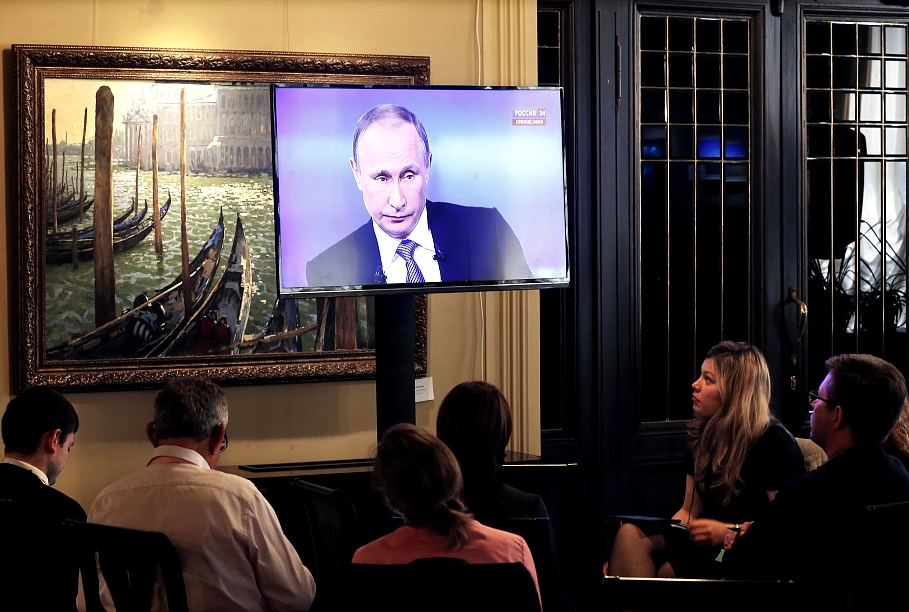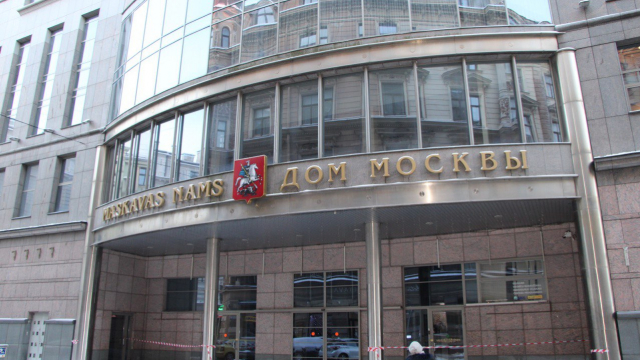Gunta Lidaka, Executive Director of the Latvian Association of Broadcasting Organizations, said during a discussion about electronic mass media governance that the Latvian mass media were losing their share of the domestic market to global players and a growing number of TV viewers in Latvia were showing preference for Russian-made media content.
Lidaka said that this trend had been revealed by monthly TV audience surveys in Latvia:
"Since July, the TV audience started changing its habits and a growing number of spectators have turned to NTV Mir and other Russian channels.
"The same happened also in August and September. We need to do something about that. LTV1 [public Latvian television] and TV3 [one of the most popular commercial TV channels in Latvia] try to fight this trend but ratings of Russian TV channels keep rising," she said.
In Lidaka's opinion, a large part of the Latvian audience ignores public broadcasters because they do not offer content that would be of interest to spectators from all age groups.
"It is vital to define clearly the public contracts for media content, specifying what is the target audience and what they need," she said.
As long as the public broadcasters financed by the state remained present in the advertising market, competition will be crippled, she claimed, arguing that it is weakening commercial broadcasters that have to make do only with their income from advertising, the head of the broadcasting association said.
Sergejs Nesterovs, board member of LTV public television, said that the financing for Latvian public broadcasters was much lower than the European average and one could not expect the public broadcasters to create brilliant content with this kind of financing.
Filips Rubenis, board member of Radio SWH, noted that public broadcasters might be using their financing inefficiently. He said the commercial broadcasters were spending each eurocent more effectively and most of them were capable of producing good-quality content. "I have the feeling that they [the public broadcasters] could accomplish more with the financing they've got," he said.
The Department of Communication Studies in the Faculty of Social Sciences at the University of Latvia hosted the expert discussion about the proposed changes in the governance of the electronic mass media.




























